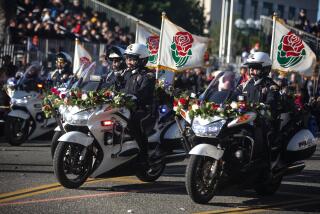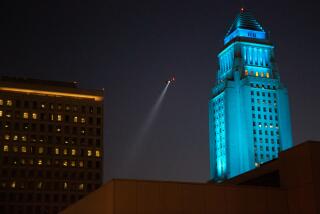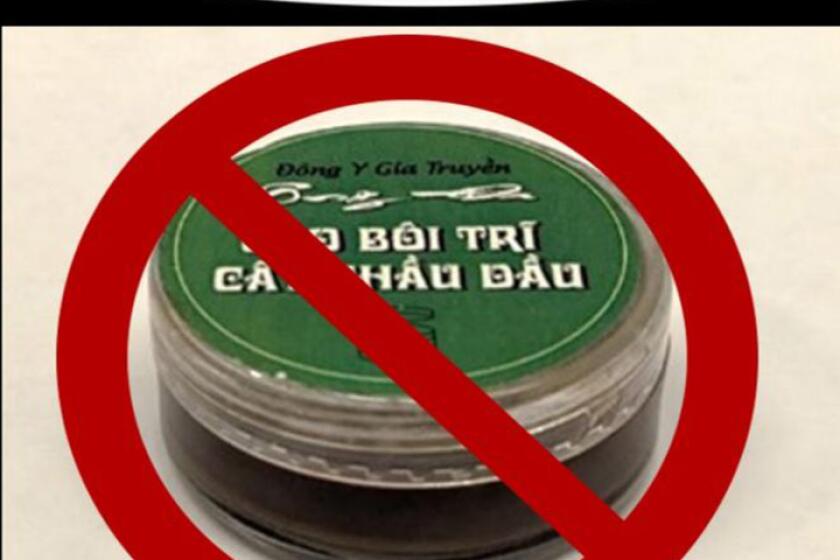LAPD moves one step closer to permanently adding drones to its arsenal of tools
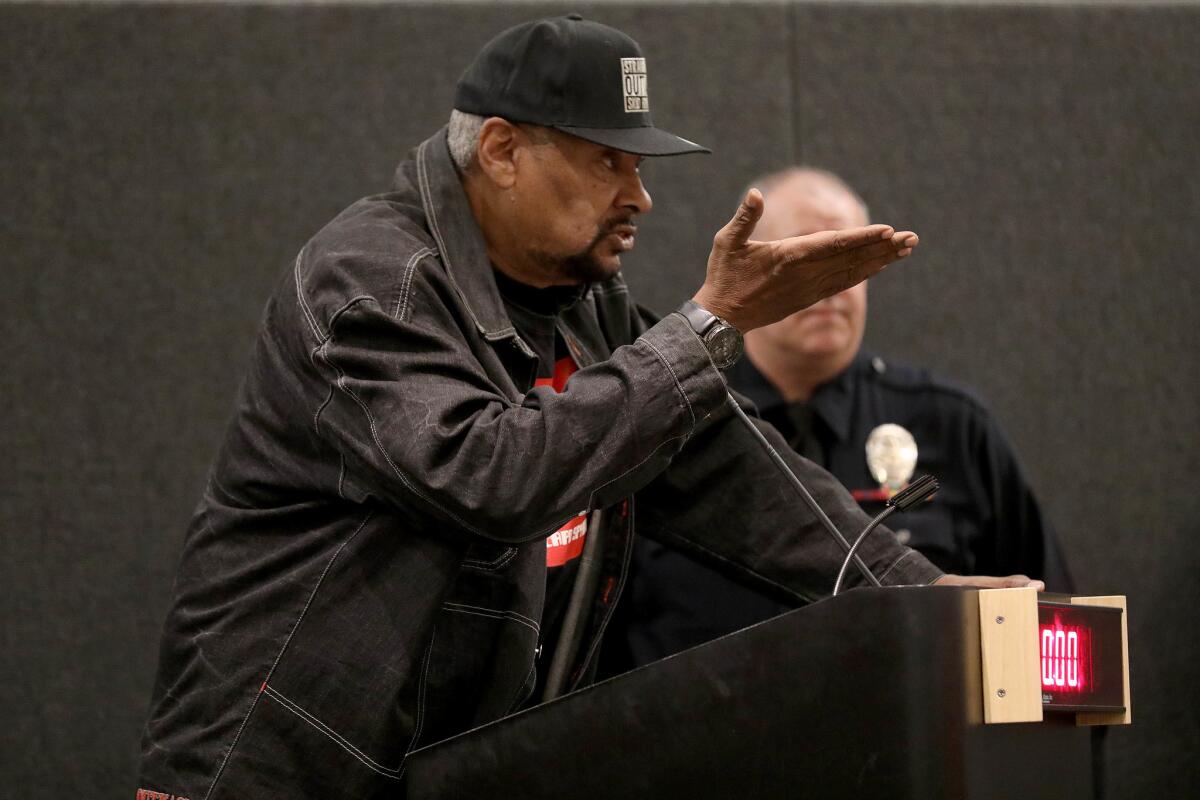
After a two-year quest, the Los Angeles Police Department moved one step closer to permanently adding drones to its arsenal of tools.
The Police Commission approved a report Tuesday on the LAPD’s pilot program to use the airborne devices and will consider a new policy in 60 to 75 days to make the program permanent.
The request came nearly two years after the five-member civilian Police Commission approved strict guidelines for police to use the remote-controlled devices in dangerous situations such as a barricaded suspect, active shooter or explosive device.
Police Chief Michel Moore told commissioners the department will not violate the public’s constitutional rights when deploying the devices.
“This is an item of significant public interest,” Moore said, adding, “It’s a device that has a great deal of controversy in some quarters.”
The vote means the existing pilot program will continue until the commission can consider a new police policy.
Commissioners Dale Bonner and Eileen Decker said a new drone policy needs to protect the public. Bonner asked how often the LAPD would update drone technology or weaponize them without telling commissioners.
“I can assure you that will not happen,” Deputy Chief Horace Frank said about weaponizing.
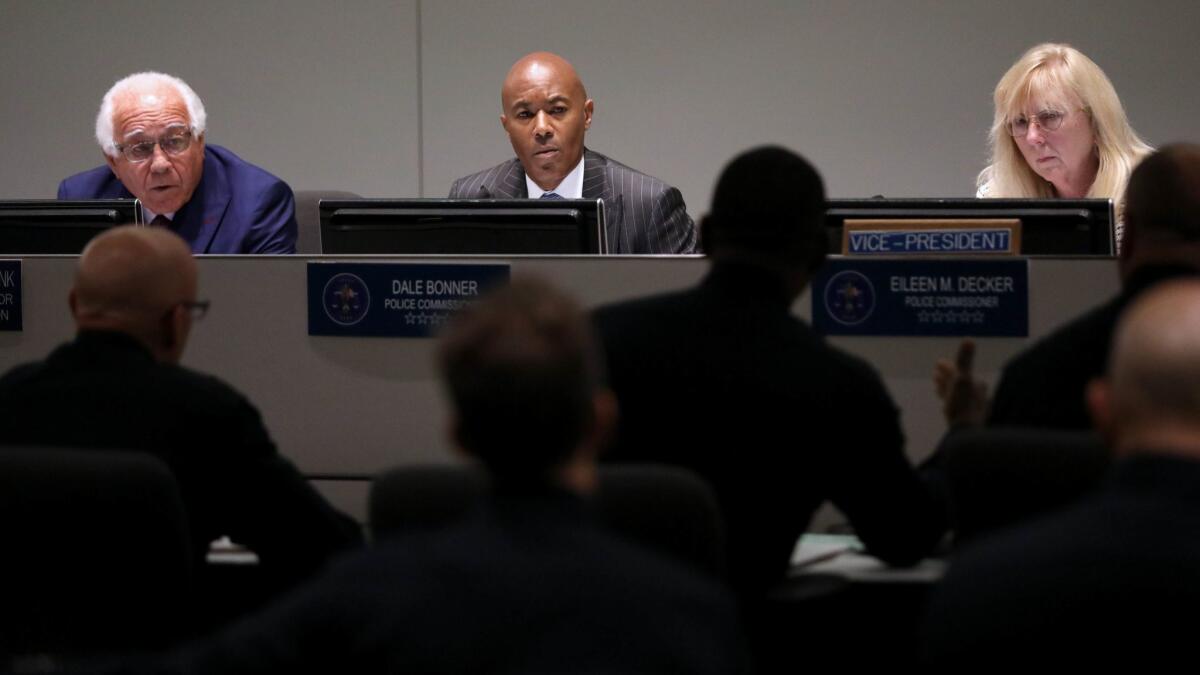
The commission and public would have “no appetite” for using drones in that manner, Moore added.
Commission President Steve Soboroff said the four cases when officers used drones show that the circumstances were very strict and training was flawless. The cameras kept police, the public and suspects safe, he added.
“I’m enthusiastic about moving forward with this,” Soboroff said.
Twenty-five residents spoke against the program and, at times, interrupted the meeting with shouts or buzzing noises.
Critics fear police will add weapons or facial-recognition tools to the drones to increase surveillance of minority communities.
“The people of L.A. have stood up against this,” Jeremy White said.
Added Craig Roberts: “They’re future weapons platforms.”
A dozen SWAT officers were certified to fly them last July, and the drones were deployed for the first time in January. Under the pilot program, SWAT officers were called to 78 incidents and sought drone approval in only six cases.
The four drones the department currently owns vary in size and are no different from models commonly used by hobbyists.
When the commission considers the new policy, it will also vote to allow the LAPD to upgrade to a model specifically made for law enforcement. Among several features, the enhancements include an estimated flight time of 31 minutes, a spotlight, a speaker system and infrared and thermal sensors.
The approval will also expand the use of the airborne devices to its bomb squad and hazardous materials unit and when officers use warrants to apprehend dangerous suspects.
The LAPD’s drones were part of a pilot program approved in October 2017 by the Police Commission over the protests of residents and privacy advocates That year, the LAPD held forums across the city to pitch the use of the flying cameras. Critics complained the devices would infringe on privacy and would be flown far more often than the LAPD had pledged.
After the meeting, Moore reiterated drones will be used only when needed to protect officers, the public and suspects.
He said he respects the critics who raised issues Tuesday but noted they disagree with “legitimate, bona fide and needed public-safety activities” at LAPD. The program, he said, has much more support across the city.
“We have a difference of opinion here,” Moore said. “This strikes the right balance. I do not believe they represent the vast majority of Angelenos.”
More to Read
Start your day right
Sign up for Essential California for news, features and recommendations from the L.A. Times and beyond in your inbox six days a week.
You may occasionally receive promotional content from the Los Angeles Times.
